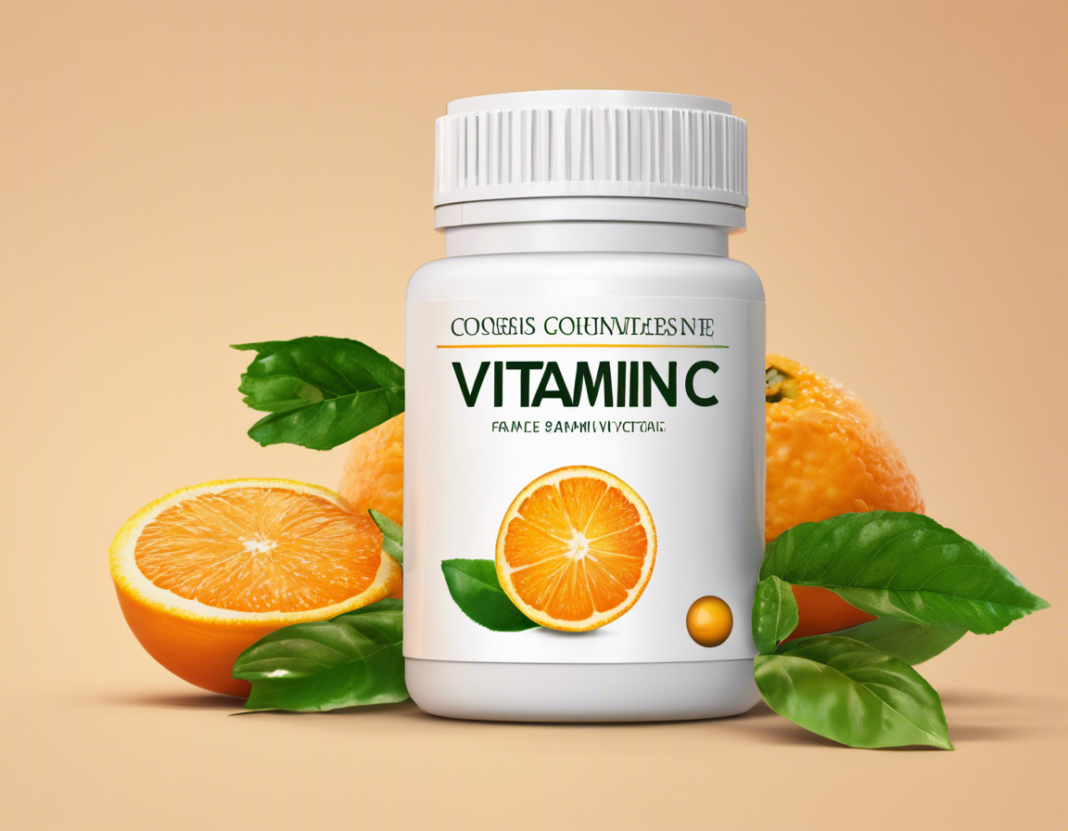Vitamin C, also known as ascorbic acid, is a crucial nutrient that plays a significant role in maintaining overall health and well-being. Our bodies cannot produce vitamin C on their own, so it must be obtained through diet or supplementation. While many people are aware of the benefits of consuming vitamin C-rich foods like oranges, strawberries, and bell peppers, Vitamin C tablets are also a convenient and effective way to ensure you are getting an adequate amount of this essential vitamin.
The Importance of Vitamin C
Vitamin C is a powerful antioxidant that helps protect cells from damage caused by free radicals. It is also essential for the growth, development, and repair of body tissues. Additionally, vitamin C plays a crucial role in the synthesis of collagen, a protein that is vital for the health of skin, bones, and connective tissues.
Benefits of Vitamin C Tablets
-
Immune System Support: Vitamin C is well-known for its role in supporting the immune system. It helps stimulate the production of white blood cells, which are essential for fighting off infections and illnesses.
-
Antioxidant Protection: Vitamin C helps protect cells from oxidative stress and damage caused by free radicals. This can help reduce the risk of chronic diseases like heart disease and cancer.
-
Collagen Production: Vitamin C is necessary for the synthesis of collagen, which is essential for maintaining healthy skin, joints, and blood vessels.
-
Wound Healing: Vitamin C plays a critical role in the body’s natural healing process. It helps the body form scar tissue and repair damaged skin.
-
Iron Absorption: Vitamin C enhances the absorption of non-heme iron from plant-based foods, which is important for preventing iron deficiency and anemia.
Choosing the Right Vitamin C Tablets
When selecting Vitamin C tablets, there are a few key factors to consider:
-
Dosage: The recommended daily allowance for vitamin C is 90 mg for men and 75 mg for women. However, some individuals may require higher doses, especially if they are under increased stress or have certain health conditions.
-
Form: Vitamin C tablets come in various forms, including ascorbic acid, sodium ascorbate, and calcium ascorbate. Ascorbic acid is the most common form and is well-absorbed by the body.
-
Quality: Choose Vitamin C tablets from reputable brands that have been tested for quality and purity. Look for products that are made by well-known manufacturers and have good customer reviews.
-
Additional Ingredients: Some Vitamin C tablets may contain additional ingredients like bioflavonoids or rose hips, which can enhance the absorption and effectiveness of vitamin C.
-
Time-release Formulas: For sustained benefits throughout the day, consider choosing a time-release formula that releases vitamin C slowly into the body.
How to Take Vitamin C Tablets
It is generally recommended to take Vitamin C tablets with a meal to enhance absorption. The body can only absorb a certain amount of vitamin C at a time, so it may be beneficial to divide your daily dose into two or three smaller doses taken throughout the day. Be sure to follow the dosage instructions provided on the product label or as recommended by your healthcare provider.
Side Effects and Interactions
While vitamin C is generally considered safe when taken in recommended doses, high doses may cause digestive issues such as diarrhea, nausea, and stomach cramps. Individuals with certain conditions, such as kidney stones or hemochromatosis, should consult with a healthcare provider before taking high doses of vitamin C. Vitamin C supplements may also interact with certain medications, so it is important to discuss any supplements with your healthcare provider, especially if you are taking prescription medications.
Frequently Asked Questions (FAQs)
-
Can I take too much vitamin C?
Taking high doses of vitamin C can cause digestive issues like diarrhea and stomach cramps. It is generally recommended to stick to the recommended daily allowance unless otherwise advised by a healthcare provider. -
Can I get enough vitamin C from food alone?
While it is possible to get enough vitamin C from a healthy diet rich in fruits and vegetables, some individuals may benefit from supplementation, especially during times of increased stress or illness. -
Are there any interactions between vitamin C and medications?
Vitamin C supplements may interact with certain medications, including chemotherapy drugs, blood thinners, and antacids. It is important to consult with a healthcare provider before taking vitamin C supplements if you are on any medications. -
Are there any specific groups of people who may benefit from vitamin C supplementation?
Individuals who smoke, are under increased stress, have certain medical conditions, or are pregnant or breastfeeding may benefit from vitamin C supplementation. It is always best to consult with a healthcare provider before starting any new supplement regimen. -
Can vitamin C help prevent the common cold?
While vitamin C is known for its immune-boosting properties, studies have shown mixed results on whether it can prevent the common cold. However, taking vitamin C supplements may help reduce the duration and severity of cold symptoms in some individuals.
In conclusion, Vitamin C tablets are a convenient and effective way to ensure you are getting an adequate amount of this essential nutrient. By incorporating vitamin C tablets into your daily routine, you can support your immune system, protect your cells from oxidative damage, and promote overall health and well-being. Remember to choose high-quality Vitamin C tablets from reputable brands, follow the dosage recommendations, and consult with a healthcare provider if you have any questions or concerns about vitamin C supplementation.
